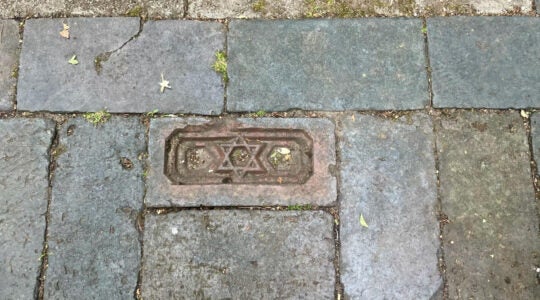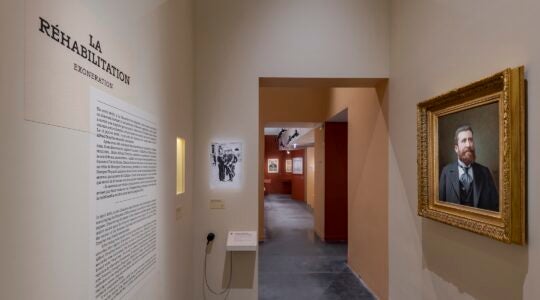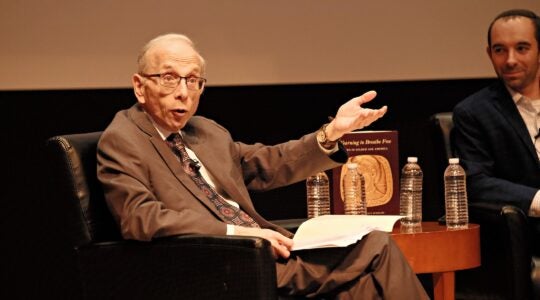On a recent Friday night I went to a wonderfully inspiring religious service on a recent Friday night at Romemu on the Upper West Side.
Beautiful singing — much of it in Hebrew — an inspiring sermon, a warm and welcoming community atmosphere. In some ways, it was a snapshot of all that is dynamic and valuable about North American Jewry. And at the same time, it was a snapshot of how sustainable Israel engagement is in real trouble.
Three things I, as an Israeli, noticed in this snapshot:
The first is such an obvious, prosaic point it is almost not worth noting, but let’s say it anyway: the Kabbalat Shabbat service was almost unrecognizable to the vast majority of Israeli Jews. Original tunes, guitar and drums, rabbi wearing a “Madonna” mike, and lots of only-half-spontaneous clapping and dancing around the hall, people being drawn in to the hora like sober guests at the office-party conga. As a British newcomer murmured to me, half in disdain and half in wonder: “It’s like Simchat Torah every week.”
To be clear: I view this kind of renewal service as one of the most creative and enjoyable aspects of North American Judaism. I’m no halachic stickler, and I love harmonizing before a meal. But you’d be hard-pressed to find even 5 percent of the Israeli Jewish population that would feel anything other than culture shock in that service. If we were only examining the pluralistic nature of Jewish practice, this wouldn’t be an issue. But I was looking for common ground between U.S. Jews and Israelis, and when religious ritual isn’t on the map, this is cause for concern.
Second, the message was ecumenical, universal, and ever-so-slightly Christian. The sermon was delivered passionately and intelligently by a charismatic and highly learned rabbi teaching us about compassion. He spoke of a blind man in a subway, there was reaching out, and there was a conceit about seeing and blindness.
The message was deeply felt and deeply sourced in Talmudic and chasidic thinking. Its message of doing good in the world was both universal and individual. Doing good in the world was not presented as the collective taking of power, nor a communal drive, but rather as an individual’s response to a social ill for which he or she had no direct responsibility to change, only to ameliorate. It was, in the end, a message for a people without a collective identity, a people without a state, living in a Christian world.
Again, as a message to the world, one could do far worse. It may even be exactly the right message, calibrated perfectly, for life on the Upper West Side of Manhattan. But it shares so very little with the thinking that underlies Zionism and the raison d’être of Israel. The idea of collectivity, the idea of responsibility for an entire nation, the possibility of uniquely Jewish aspects of our moral mission on earth — these were nowhere to be found.
I don’t suggest that the individual approach is bad and the collective approach is good. Just that — again — the common ground with Israelis is terribly sparse.
Finally, it was clear that this Friday night service was the Jewish highlight of people’s week. There was spiritual uplift and harmony. It was a beautifully constructed evening that was complete in and of itself. In a packed week of work and family, people turned to Romemu for their Jewish island and its comforts. For some it might have been their only encounter with their Jewish identity that week. For others, if not their only encounter, certainly their most inspiring.
Yet there was no room for contemporary Israel in this service. How could there be? How can Middle Eastern discord be allowed in among the harmonies? What space is there for Israeli doubt, fear, and fury, in a service so full of comfort and consensus? It would be wrong, or wrong-headed to ever expect that Israeli current affairs should gain anything more than a mention of the local Yom Ha’Atzmaut celebrations.
Yet if one believes, as I do, that Israel is one of the most important missions of the Jewish People, then a Jewish service that is perfect without mention of this mission is cause for concern. I do not judge this service on its own merits — it was not lacking, it was not empty, it was neither dumbed-down nor patronizing. It was a beautiful expression of how Jewish life can feel itself complete and vibrant without being in any way connected to Israel.
Was this a misleading snapshot? Or was it another sign of the dying of the light between Israel and the diaspora?
Robbie Gringras is artist-in-residence for Makom, an educational project of the Jewish Agency for Israel.
The New York Jewish Week brings you the stories behind the headlines, keeping you connected to Jewish life in New York. Help sustain the reporting you trust by donating today.




